How National Geographic engage 350 million combined global followers via storytelling content marketing on social media
Personally, I follow National Geographic across all social platforms - preferring the visual platforms like Instagram, Pinterest, and Facebook - and for many years been a paid subscriber to their printed magazine. So what makes me, and their other 81.7 million followers on Instagram stop scrolling, engage with the content and ultimately convert to their paid content? (They are the number 1 television brand and number 2 printed media on facebook). It's the ingenious way they captivate attention through the power of visuals and great storytelling. This is why storytelling is the future of social media.
With the multitude of content on social and the many brands that choose to pay to promote content, it is becoming an increasingly crowded and noisy environment to reach social users. Although 37% of marketers say visual marketing is the most important form of content for their businesses, second to blogging, long gone are the days were you place an image in front of your audience and expect them to know what it is and why it's there - and National Geographic tell their audience why they should stop, read and engage.
National Geographic are masters at engaging their combined 350 million followers on social and this is how:
"The power of wow": using awe-inspiring images
National Geographic is known for producing high quality, colourful and unique visual content - this is the first step in getting users to stop scrolling. The 'wow' element of the image makes the user stop and wonder where/who it is - wanting more information and letting them escape from their current location and situation.
This is why NatGeo have their largest following on Instagram, 81.7 million. This may be surprising as Pinterest is a great platform to create visual boards, but NatGeo doesn't provide a large description (or story) to accompany the visuals on Pinterest like they do on Instagram - supporting that the art of storytelling is a rising trend that engages users and keeps them coming back for more. Visuals are great, but simply not enough.
The image has approximately 8 seconds to engage the viewer further - the average attention span before you risk losing the users attention and they are lost to you, scrolling past your content and finding cat videos, memes and the latest internet viral trends - so make those 8 seconds count.
Nadine Heggie, VP of Brand Partnership, shared her thoughts on NatGeo's key to success:
"Staying true to your brand, being timely with content, using the power of wow and wonder, and embracing new technologies to tell stories".
Being bold, original and providing images from an array of photographers keeps the content fresh and interesting. Keeping to your purpose is also important, NatGeo returns 27% of their profit to the not-for-profit National Geographic Society that funds research and projects.
An engaging first sentence or hook
There are first line sentences that can really grip your audience: interesting, unusual, shocking, or emotional. Viral content is consumed because it meets these human emotional needs. NatGeo brings all these elements into their social content strategy.
Interesting
If the visual and the opening caption portrays wow and wonder, users are more likely to engage with the content. Take for instance this example:
It is interesting and creates wonder because it is different - many users might never experience something like this and for some, this is as close to it as they will get. This is why it is interesting - they want to know more. Social users are compelled to click 'more' to immerse themselves in the full story as a form of escape.
Here are some other examples, take a look at the stunning visuals that are accompanied by three lines of a caption that grab your attention and make you wanting more.
Unusual
You find yourself asking what is this? And then, after NatGeo give you a snippet of what it is, you want to know more.
Shocking (wow and wonder)
Much like the 'interesting' caption, this visual and hook says to the reader this is something of wonder: 'some of the biggest granite walls in the wo...'. I find myself wanting to know more about who the person is the picture is, what is he doing and more about the granite walls NatGeo have begun to tell me about.
Emotional
Emotional content can either be historically emotional, personally emotional or topically emotion (current affairs).
It is also important to note that the comments that are generated by post-engaged users also helps with sentiment and persuasion. For instance, the use of the fist pump emoji signals respect - therefore, persuading the user to read the full story to find out why the image and the content deserve your respect.
The above example of another emotional visual and opening hook is the aftermath of a recent natural disaster. Although the image is credited to have been taken after a previous hurricane, the storyteller goes on to remind the audience that is has been shared because of a recent crisis - hurricane Irma. Because this was a topical issue that affected many people in the Central and North American region, users could resonate emotionally with loss, pain, and despair. Those that weren't personally affected by the disaster, will feel a sense of unexplainable guilt due to the seriousness of the topic if they were to scroll past without giving it a chance or show respect.
The story
So we've seen that great visuals and an interesting, emotional, shocking or interesting first hook sentence is a must on Instagram to get users to stop scrolling, but now NatGeo need to keep the user there and reading their full content, but how?
They aren't shy about giving you a long and detailed story about the contents of the photograph.
I haven't included the images with their caption for a reason - the text paints the picture for you!
The captions are always full of detail and rich with every description of the subject of the image, their reason for being there / why they are important and descriptions of their surroundings. Putting all these features together (visuals, hook, and story) creates awe and the 'wow' factor National Geographic aims to achieve.
Similar to that of NatGeo's strategy, Humans of New York a social and now printed book of media and stories - owned and ran by Brandon Stanton - uses the same techniques to achieve success. In under 7 years, the Facebook page has managed to gain almost 20 million followers on the social platform he started it all from. The use of large descriptive stories supplements his portraiture photography - much like NatGeo.
The power of telling your audience a story is a technique that must not be overlooked, because when done correctly with strategic planning - knowing who your audience is, where they are and what story they want to know - will provide great engagement with your content and brand.
Lack of corporate branding and promotions
Each photograph is credited to individual photographers instead of being a branded asset. This makes the content much more personal and less corporate, tapping into the psychology of personal interaction between brand and consumer. Being over promotional is a common mistake for content marketing - this can be really off-putting to your audience, which is why National Geographic's images are credited to the photographer instead.
National Geographic can be described as a 'human' company because of the connection they create between themselves and their audience, making them popular on social media platforms.
Soundless video content in your content marketing strategy
They don't limit themselves to just static images - they also boast an array of videos. However, Facebook and Instagram video platforms now auto-play on users' feeds, meaning more and more videos are being viewed without sound.
This makes it much harder get a message across - so how do NatGeo overcome this boundary?
Well firstly, have a video that doesn't NEED sound to tell your story or engage your audience. One trend to aid this tactic is interactive 360 video. Get your audience interacting and playing with your content and discovering for themselves if you can't portray that message without sound.
This interactive 360 video is engaging without sound and still provides information with sporadic subtitles. If the viewer wants sounds then they can turn it on and hear soothing ocean noises. The background noise adds to the tone of the story and aids in the emotional connection to the content but doesn't affect the story itself being told.
It is believed that the use of subtitles is taking a step back and away from progressive video content like VR and AR but with some integration, the two can work effectively together, without ruining the captivating visuals like that of NatGeo.
If however, you don't have the content to create an engaging 360 video and would prefer to stay with a standard video, subtitles are a must in order to tell your story and take your viewer on a journey.
From social media to paid subscription
It took me a while to convert to a paying member and that's because they do such a great job on social with free and still interesting content. So for a while, I didn't think I was missing out by just following their social platforms.
But the more I saw on social the more I wanted to know. 'For 128 years National Geographic has delivered incredible storytelling' is the hook on their membership landing page and that made me wonder whether I was missing out on more stories from around the world.
On top of that, their landing page is simple and the CTA is bold and stands out on the white background and surrounding white space.
Common content marketing strategy mistakes
One of the common content marketing mistakes is producing mediocre and insufficiently useful content - to succeed in engaging social users you should be meeting or ideally combining some of these tactics:
- Entertaining/ moving/ thought provoking
- Provides genuine utility
- Educational
- Absorbing/ immersive
- Visually stunning
- In-depth/ detailed
- Provides a uniquely positive user experience
- Includes optimised data visualisation/ infographics
NatGeo tick almost all of these boxes! This is why they are one of the most inspiring and relevant brands on social - their storytelling captures their audience's attention and keeps them coming back for more. Eventually converting followers into paying members.
For more common content marketing mistakes, we have a free guide detailing where you are going wrong and how to fix it!
source https://www.smartinsights.com/content-management/content-marketing-strategy/storytelling-content-marketing-strategy/
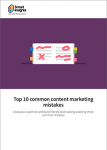
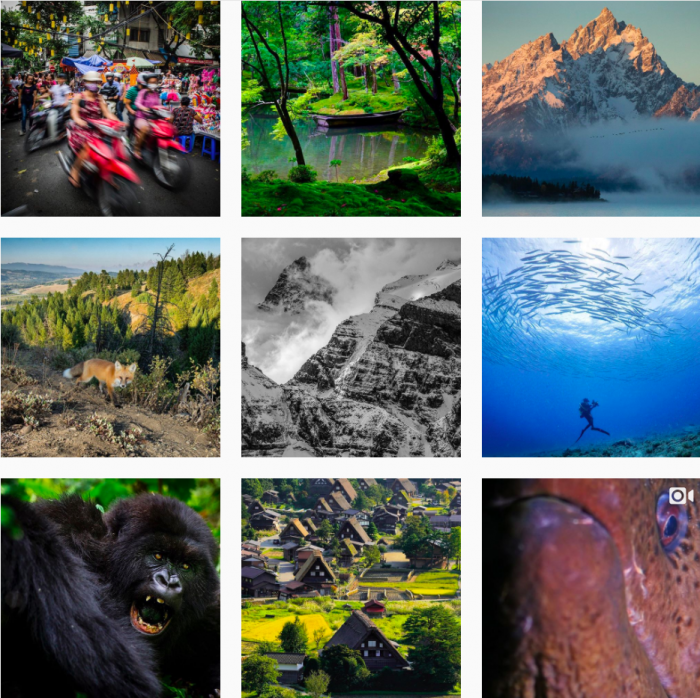
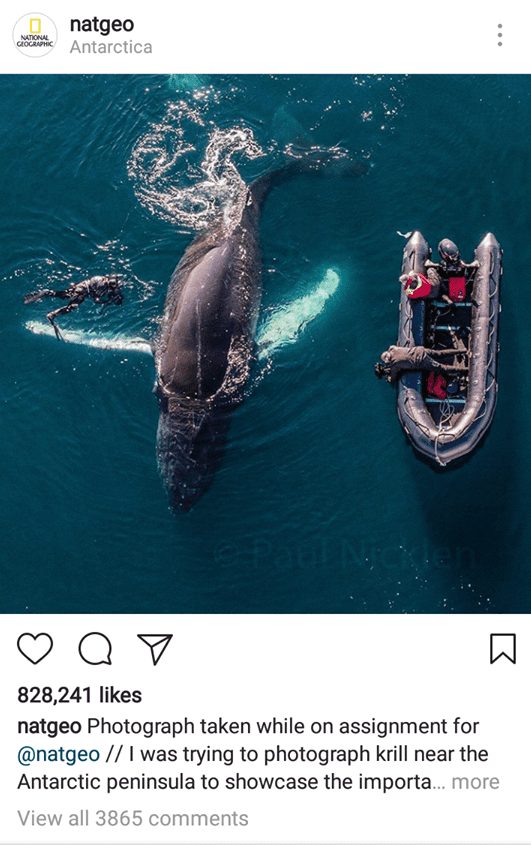
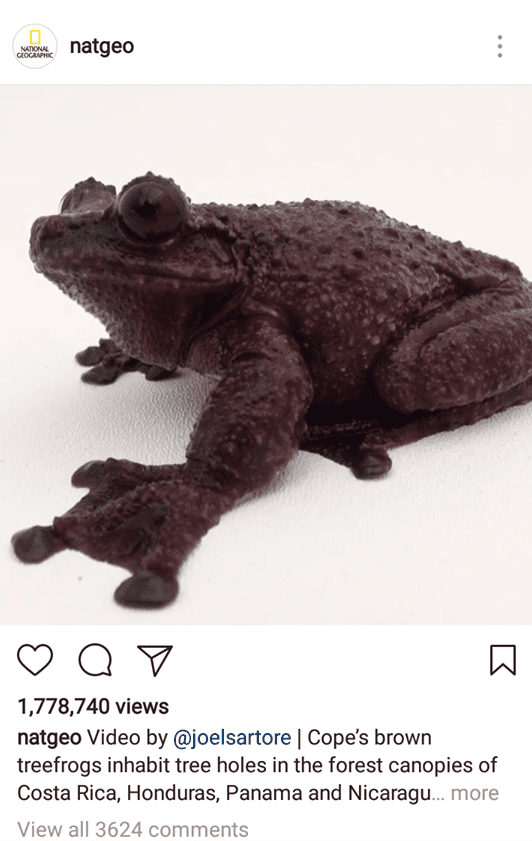
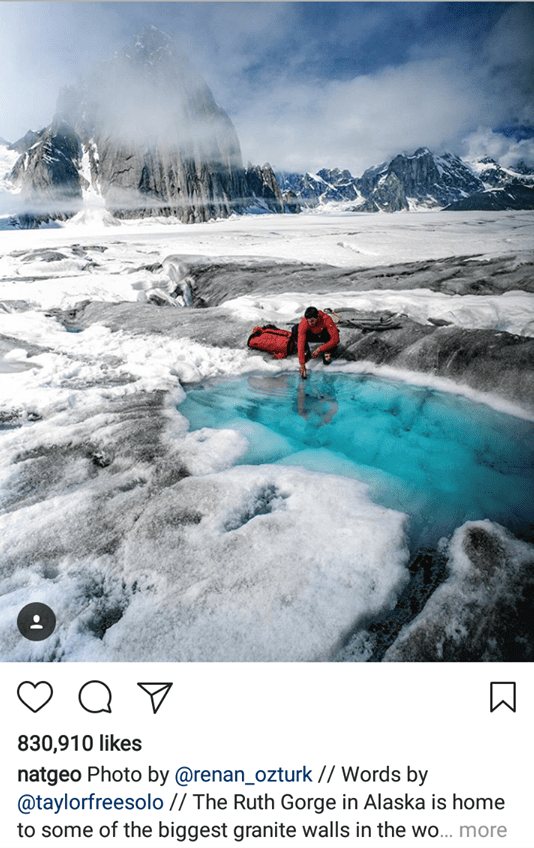
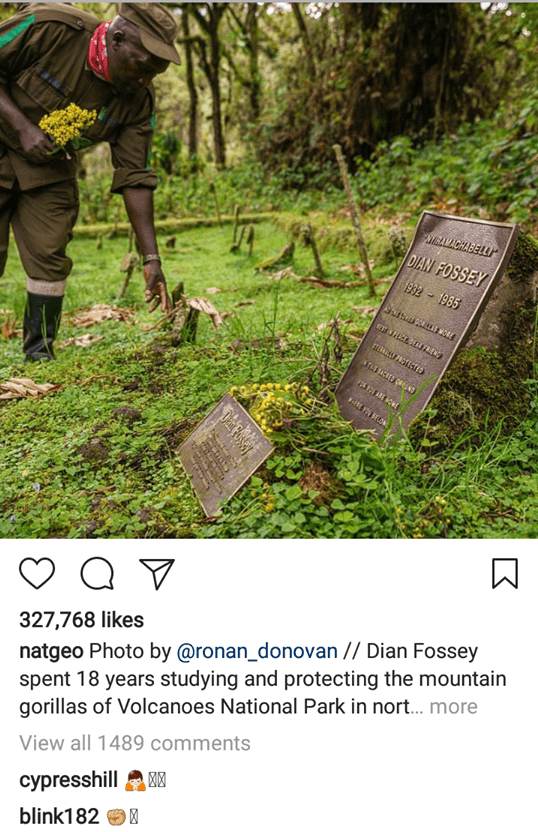
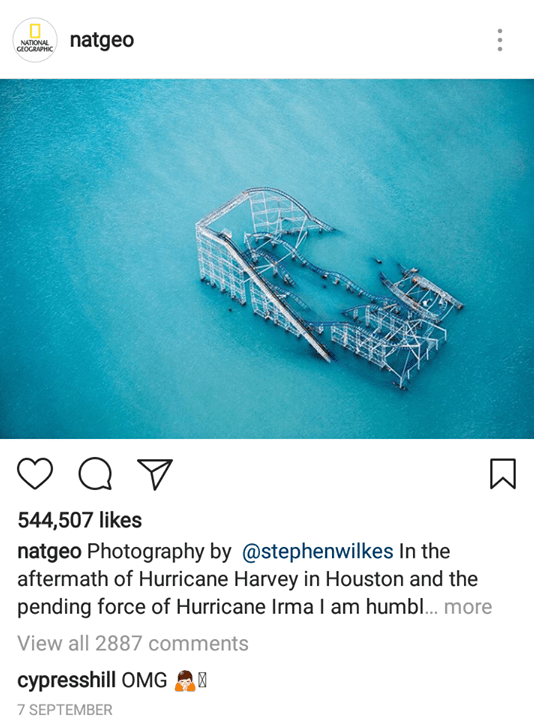
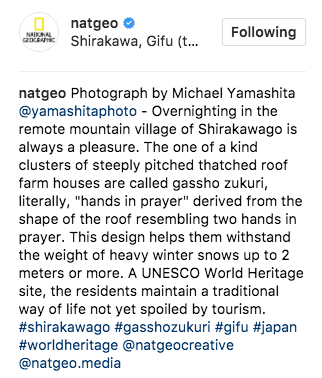
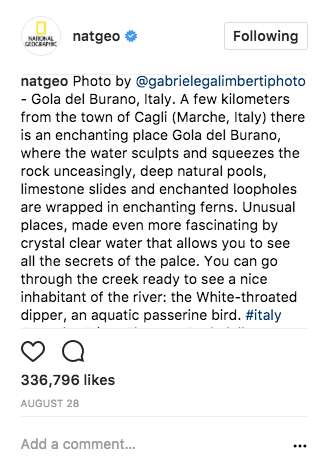
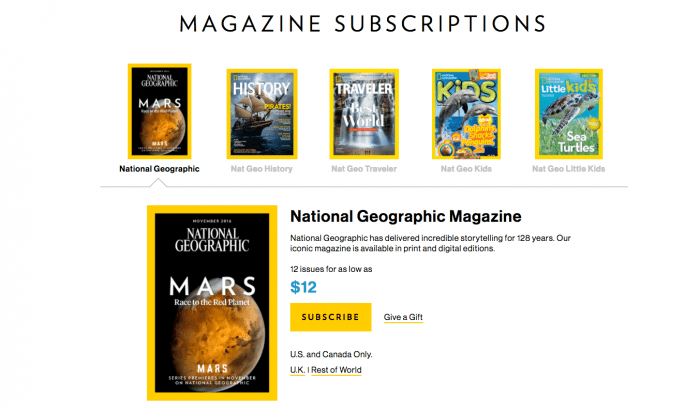
No comments:
Post a Comment